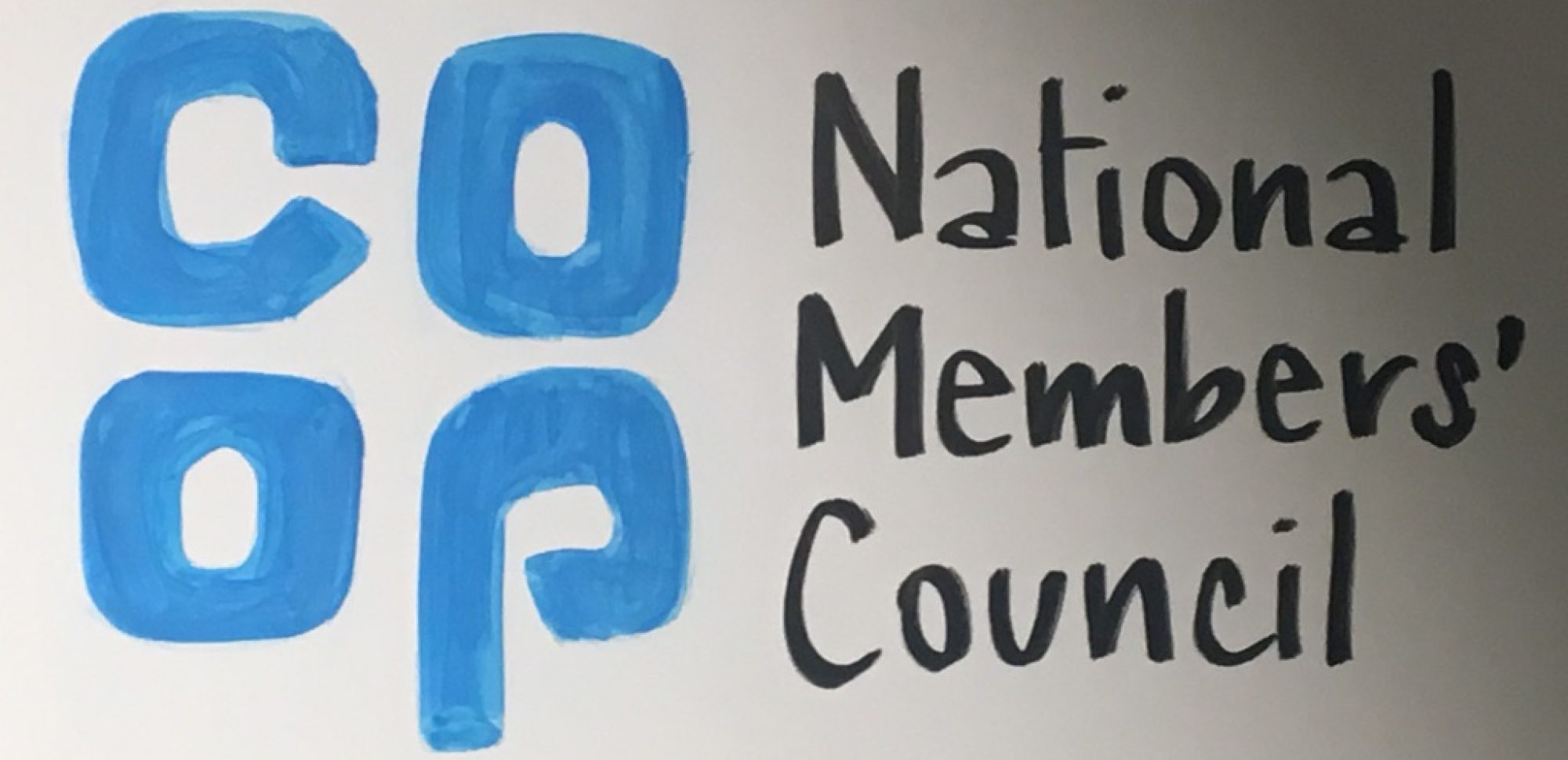7th – 8th February 2020, Birmingham
Future Co-ops is a unique conference in the co-op movement’s calendar. I’d never been before, although over the years I’d heard very good things about it. Many co-operators spoke warmly about its friendliness, the interesting issues that it addressed, the unique networking opportunity it presented, and the valuable, open space for discussion and debate about all things co-op.
And it didn’t disappoint – with delegates from across the consumer, worker and community co-op sectors, a mixture of old and new friends and faces (including several current and former Council members, attending in a variety of capacities).
The theme of the conference was ‘20/20 Vision: The Co-operative Future in Focus’, with the strapline ‘20 years of co-op past and 20 years of co-op future’.
The conference organisers
The Conference is organised by Co-operative Futures, a business development consultancy that specialises in co-ops and which is celebrating its twentieth birthday. Incubated by and then spun out of the former OSG Co-op (Oxford, Swindon and Gloucester), now Midcounties Co-op, Co-operative Futures is a co-op itself, working across the region to support co-op development.
Friday evening: A review of 2000 to 2020
The Friday evening presented an opportunity to review events of the past 20 years, looking back at key events in the co-op movement and wider world. As a prompt, each year was displayed on a flipchart sheet featuring headlines and articles culled from Co-op News. Was the independent Co-operative Commission tasked to review the strategy and structures of the co-operative sector really set up twenty years ago? The 2012 UN International Year of Co-operatives also seems like a distant age.
Some of the key figures who were present at the time spoke about some of the key issues facing movement, such as Pauline Green, former President of the International Co-operative Alliance and Chief Executive of Co-ops UK, who talked about the importance of strengthening the movement’s collective strength in influencing the Government and at the EU level. Bob Burlton, former Midcounties Chief Executive and Co-op Group Chair talked about the success of the Co-op Enterprise Hub, the former co-op development support scheme supported by the Co-op Group that had been a real game-changer for the movement. Other attendees talked about new challenges, such as those involved in setting up a new co-operative Bank in Wales.
The evening was rounded off by a fantastic co-operative-themed quiz – something perhaps the National Members’ Council could try its hand at one evening?
Saturday: the next 20 years
The day involved exploring what the next 20 years would look like, and what we need to do as a movement to make it more co-operative. A series of expert presentations set the scene, covering issues such as:
- Demographic trends and their implications, including the preparedness of our systems to respond to shocks and the idea of ‘panarchy’, when different systems come together and create unintended outcomes
- Climate change and the sheer pace at how quickly things are moving: whilst the UK is “miles off track” there may be a rapidly approaching tipping point in social pressure to take fundamental action. Communities businesses are going to be key to this agenda.
- The ‘fourth industrial revolution’ of Artificial Intelligence, machine learning and its impact on trade, security and work.
Following this, through round tables discussions and breaking into groups we looked at what we thought the world would look like in 2040 some of the key issues and challenges we would face from a co-operative perspective. Some emerging thoughts included:
- How the co-op movement is better at social innovation than technological innovation
- How we should be starting in the here and now and just getting on with what we can do
- The importance of people coming together to tackle climate change locally
This got me thinking as to what the National Members’ Council could be doing to support local Co-op member activity in our communities, such as through local Co-op member groups and Member Pioneer activity. It might be worth Council exploring these issues in more detail, if we think the climate emergency is something we should be prioritising?
Breaking into themed groups, we then explored potential co-operative solutions to address a range of issues, including energy, employment and working life, housing and homelessness, care, community owned spaces, food, and technology.
- Energy: we explored the potential for community-owned recharging points for electric cars, moving on to challenging the tech giants through disruptive co-operative-owned models for pools of community-based driverless electric cars
- Community-owned spaces: we discussed the importance of promoting a DIY ethic, the need for education about co-operative solutions, and the role of funding through mechanisms such as the Co-op Foundation’s interest-free loan offer for community places and spaces.
Conclusion and recommendation
This is a wonderful conference, and a great opportunity for new and old co-operators alike to engage with ideas, co-operative solutions and like-minded people from a diverse range of backgrounds across the co-op movement.
I would recommend that next year the Council sends a bigger delegation of Council members, enabling more members to benefit from this opportunity.
